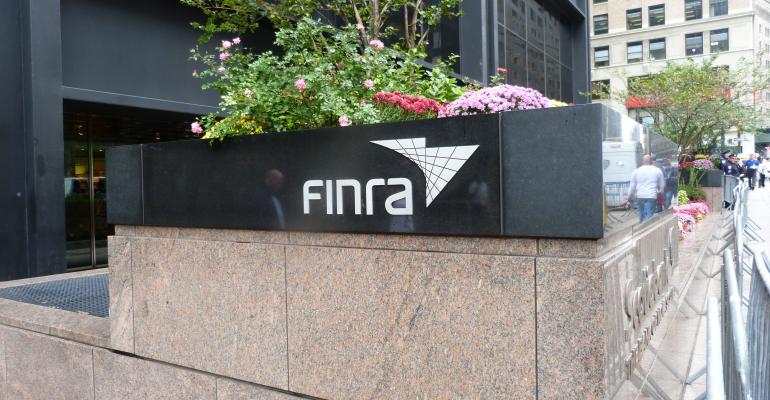The Financial Industry Regulatory Authority will take a closer look at firms’ cash management and sweep account offerings in light of recent changes to trading commissions, according to the agency’s letter outlining 2020 exam priorities released Thursday.
Late last year, several brokerages and custodians said they would eliminate commissions on ETF, stocks and options, including Schwab, Interactive Brokers, TD Ameritrade, E*Trade, Fidelity, Wells Fargo and Merrill Edge. The move has drawn much attention to how these firms make up the revenue lost, which may include cash sweep accounts and selling order flow, although they don’t all rely on these.
“While these Bank Sweep programs may offer useful features to customers – and in some but not all cases, offer higher-than-average interest rates – they have also raised several concerns about firms’ compliance with a range of FINRA and SEC rules,” the letter read.
Brokerage firms will often take cash from a client’s investment portfolio and place it in an account (often with an affiliated bank) that will typically earn the client a low yield on interest. However, the firm increases its own revenue by keeping a percentage of the “swept” cash.
Brokers like Schwab, Merrill Lynch and TD Ameritrade (among others) will often rely on cash sweep accounts as a revenue source. (Last year, Fidelity critiqued brokers’ sweep account practices, arguing investors benefited from a higher yield with their cash invested in that firm’s U.S. government money market fund.)
According to FINRA’s letter, examiners may ask whether firms adequately relay the nature of their sweep arrangement and potential cash management alternatives to clients. FINRA may also question whether there is a process in place to “perform reconciliations of customer balances” held at each bank housing those kinds of accounts for the given firm.
The agency also indicated a higher level of scrutiny of firms’ order routing practices, as a result of the boost in zero-commission activity. Examiners will look for potential conflicts of interest in order flow decisions and whether clients are sacrificing on best execution of the trades.
According to the letter, FINRA might question firms on whether the move to zero-commission trades “resulted in changes to your firm’s routing practices, execution quality, regular and rigorous review policies, or the level of trading rebates or payment for order flow.” The agency also said they would investigate disclosures and advertisements mentioning zero-commission trading.
At the eMoney Summit in Austin last October, Fidelity Chairman Abigail “Abby” Johnson said the question of whether zero-commission trades was sustainable is ‘complicated;’ while Fidelity does not sell order flow, she said firms that do may be better able to weather the loss in revenue from cutting rates to zero.
“If you’re small and you’re really just doing brokerage, [selling order flow] is the path that you have to follow,” she said at the time.
The letter also detailed how examiners would approach compliance with Regulation Best Interest, which goes into effect on June 30. Prior to implementation, FINRA will review how firms were preparing for the new rule. The letter also includes a number of “factors” examiners would take into account to determine compliance, which largely matched examples from a compliance checklist on Reg BI previously released by the agency.




